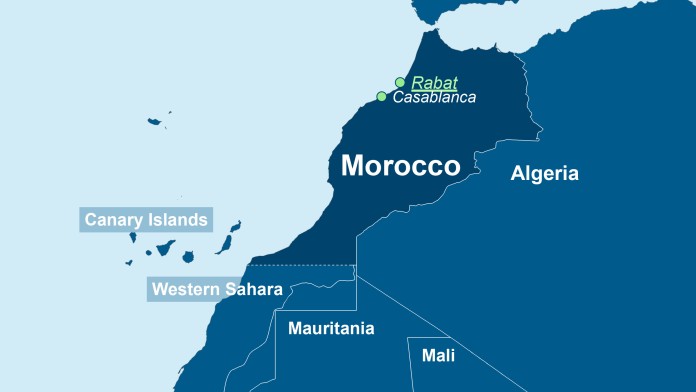Morocco has made good deal of progress in recent years. At the same time, development of the private sector and employment remain key issues with regard to the country’s further development: Morocco’s official unemployment rate is around 10%; the real unemployment rate is likely to be much higher. Only around half of 25- to 35-year-olds have a job, many in the informal sector. Small and medium-sized enterprises (SMEs) provide nearly half of the jobs and thus generate employment, income and growth. This is why German Development Cooperation is active in this sector.
Many Moroccan SMEs still find it difficult to gain access to the necessary funding for investments in building and expanding their business operations: for risk-related reasons, most banks primarily grant loans to larger or state-owned enterprises in urban areas. Small and medium-sized enterprises find it hard to gain access to these resources, especially in rural areas. SMEs also lack the equity capital they need to grow. Their employment and economic potential is thus being greatly underutilised. In addition, there are over 2.5 million informal businesses. Most of them are microbusinesses; around half of them have access to microloans. The rest are able to finance their businesses through family, friends and informal suppliers. So, an effective, inclusive financial sector that can provide customised support for Moroccan entrepreneurs’ investments is a key factor.
KfW promotes granting loans and providing equity capital to microbusinesses and small and medium-sized enterprises by providing refinancing funds and accompanying support for banks and microfinance organisations. It helps to establish structures in the financial sector, for example in the area of innovation and start-up financing, for financing more energy-efficient production processes or for providing financing in rural areas.
Partner organisations for this MSME promotion include the state-owned Caisse Centrale de Garantie (CCG), for example through the approach taken by the “InnovInvest” fund, Crédit Agricole du Maroc (CAM), Finéa – a subsidiary of the state-owned Moroccan development bank Caisse de Dépôt et de Gestion (CDG) –, the JAIDA microfinance fund, venture capital firm PMEC and the SANAD Fund for regional MSMEs initiated by KfW.
Project information Sustainable economic development (PDF, 153 KB, non-accessible)

Share page
To share the content of this page with your network, click on one of the icons below.
Note on data protection: When you share content, your personal data is transferred to the selected network.
Data protection
Alternatively, you can also copy the short link: kfw-entwicklungsbank.de/s/enzBWsnj
Copy link Link copied